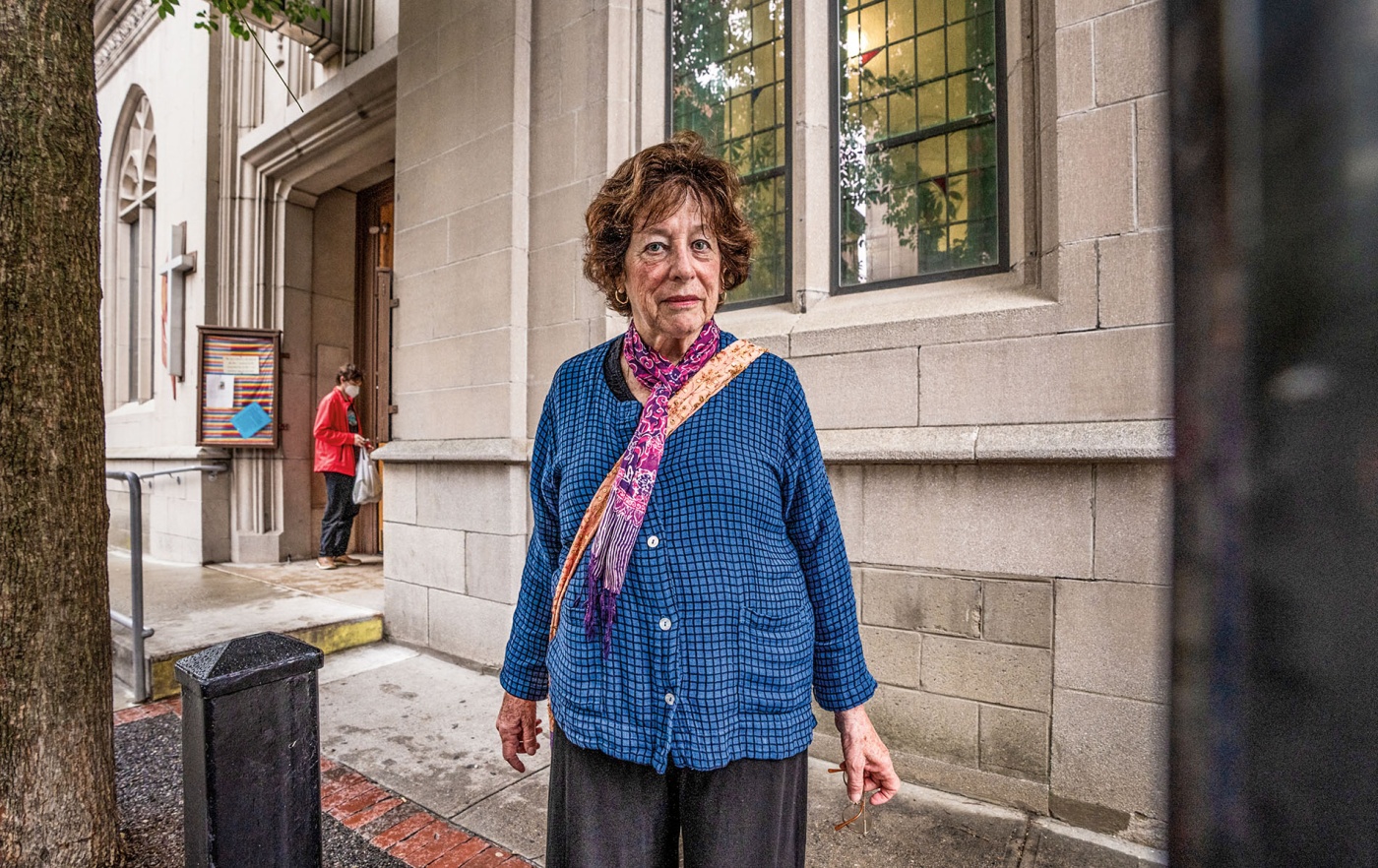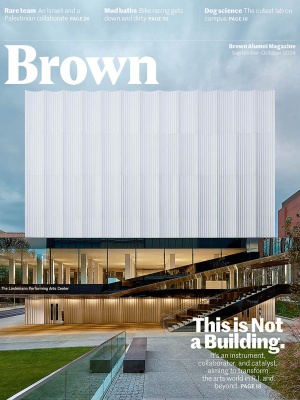The Anthropology of Homelessness
In ANTH 1301, future doctors and policymakers get immersed in research and realities.

In an age when emergency rooms have become de facto shelters on the coldest nights of the year, it’s not surprising that Irene Glasser’s class ANTH 1301, the Anthropology of Homelessness, has attracted a heavily pre-med/healthcare crowd.
Aspiring psychiatrist Gene Lee ’23 took Glasser’s class on homelessness as well as ANTH 1300, on the anthropology of addiction and recovery. “I gained a better understanding of how big the problem [of homelessness] is—without having to become a nihilist,” he says. “I learned how to listen.” Studying with Glasser, an adjunct lecturer in anthropology, has further motivated Lee to go into medicine, he says: “When people suffering from mental illness are without access to reliable and consistent drug therapies [due to homelessness], their behavior can lead to unfortunate consequences.”
Students learn from lectures and texts, but also from hands-on work. Field placements, curated by Glasser within the Swearer Center’s guidelines for community outreach, demand a two-hour weekly commitment to working anywhere from a shelter to a community meal site to a traveling public bathroom. With classes, reading, field notes, and research, the syllabus outlines about 18 hours of work per week.
“I tell the students right at the start, during the shopping period, that this class requires commitment,” says Glasser, who won the 2022 Howard R. Swearer engaged faculty award for teaching. Still, the students line up. “I don’t think Professor Glasser’s courses need much advertising,” says Madeline Noh ’22, ’23 MPH, who served as Glasser’s teaching assistant for two years. “The word is out.”
Back in the ’80s, Glasser was a licensed social worker looking for a thesis topic that would earn her a doctorate in anthropology at the University of Connecticut. In the meantime, she mentioned to her advisor that she was volunteering in a soup kitchen. The advisor’s eyes lit up: “There’s your topic!” That moment gave way to Glasser’s book, More Than Bread: Ethnography of a Soup Kitchen, and a long career as an anthropology professor specializing in homelessness.
Theory, meet irl
Field work can be a wakeup call for future policymakers. “One of my students was in a homeless shelter at night and wanted to print out an application for housing,” Glasser says. “When he hit the print button, eighty pages of an application came out.” The student was shocked. “How’s this person going to fill out eighty pages, and they’re exhausted from being in the street all day?” Similarly, work at Shower to Empower, a mobile shower and haircut operation, can help future doctors see that many unhoused patients are not comfortable seeking medical care if they’re not clean.
Students learn NVivo, qualitative analysis software used by professional anthropologists, and build their own ethnographies in response to the fieldwork. As Glasser explains in her 1999 book Braving the Street: The Anthropology of Homelessness—one of her three books on the topic—“Ethnography is a way of entering a culture, learning about it, and, as much as possible, communicating a ‘native’ point of view to a wider public.” Visiting guest speakers address everything from LGBQT+ homelessness to the unhoused in post-Soviet Russia.
In spring 2022, Grace Kirk ’24 opted to complete her field work in Glasser’s class at Street Sights, a publication devoted to stories by those currently experiencing homelessness. When Ronny “Sammie” Walker had a story to tell that kept stalling out on the page, she stepped in as stenographer: “Sammie didn’t have to sit down with me that Friday afternoon, nor did he have to be as open and transparent as he was with me. But he wanted to tell his entire story—the good and the bad—to be an example for those who have [come after].”
Glasser speaks of the relationship between the homeless and the researcher as being something akin to teacher and student: “A philosophy in anthro is we’re learning a new culture from an expert, and an expert is a person in that culture.” In this case, Kirk allowed herself to become a conduit for Walker’s story, essentially putting him at the head of the class and settling herself into the front row.
The readings in ANTH 1301 include Glasser’s own research, academic journal articles, and books from luminaries such as George Orwell (see right). One memoir—Lee Stringer’s Grand Central Winter—chronicles the slow, insidious tumble of one man into homelessness. It’s a story that student Lee can’t forget. “He was just a normal guy and then somehow horrible things happened and you can’t recover from it.”
Noh, who plans to go to law school, points to learning the importance in ANTH 1301 of discovering “the role of cultural congruence,” or the ability to provide care that corresponds and reacts appropriately to an individual’s own culture.
observe & serve
Cultivating a close, compassionate awareness of the other, of those with whom we choose to sit and listen and learn, drives Glasser’s work. That homelessness is becoming increasingly criminalized in our society means that future doctors like Lee will be responsible for preventative care on a whole new level and future lawyers like Noh will help reinvent policy.
Staying silent in the face of another’s hardship can present its own challenges for students who arrive to Glasser’s classes highly motivated to solve some of the world’s most complex social problems. But Glasser keeps it clinical. “It’s difficult because I have some very energetic students and they love coming up with ideas, but I tell them that anthropologists are not fixers; we’re observers.” Still, for Glasser’s students, many of whom have chosen to continue to work in the field, seeing is undoubtedly the antecedent to action.




